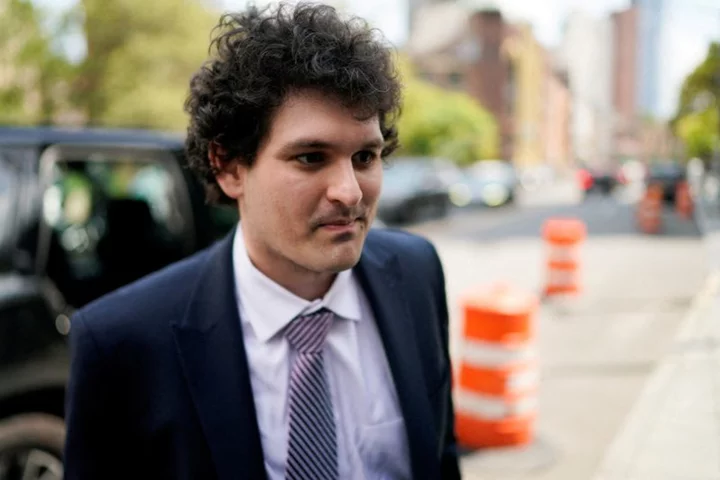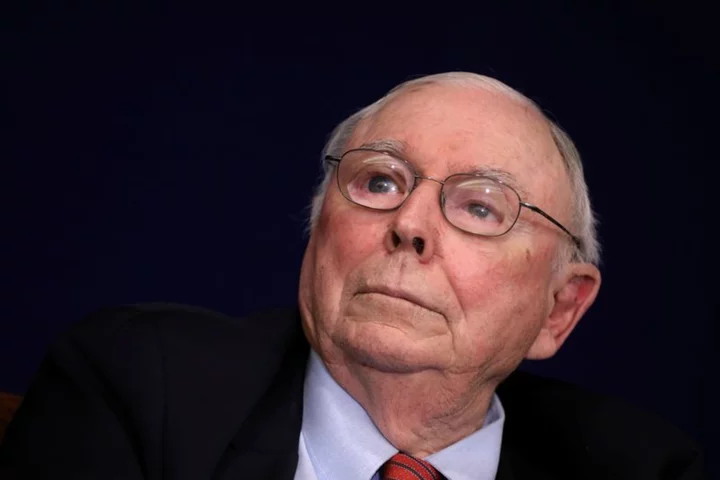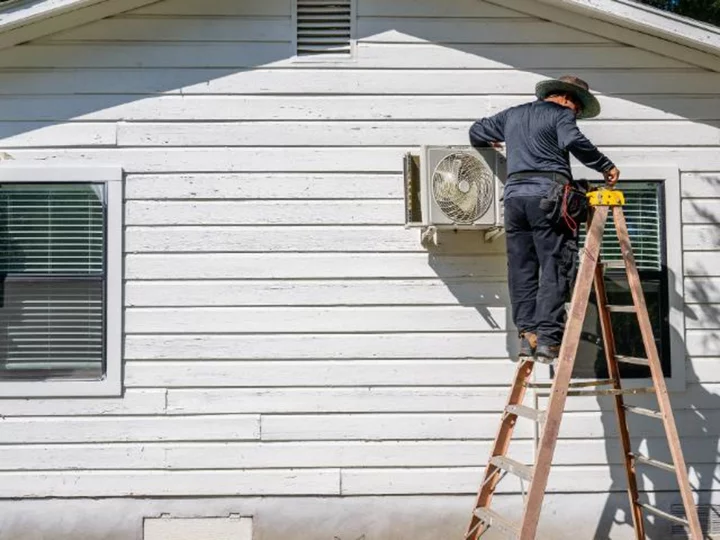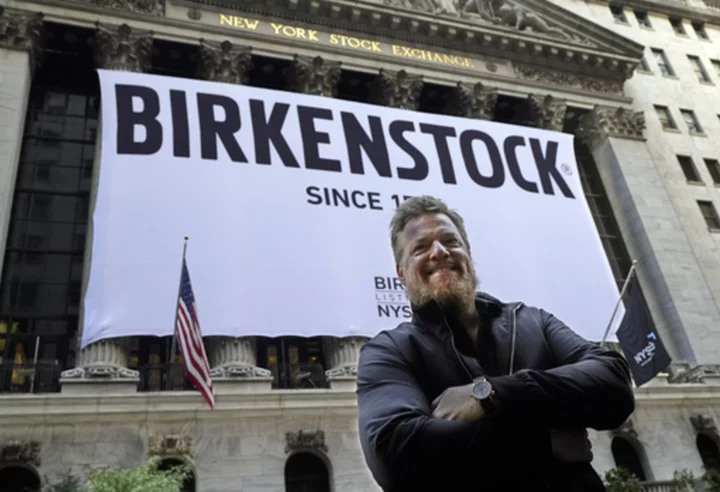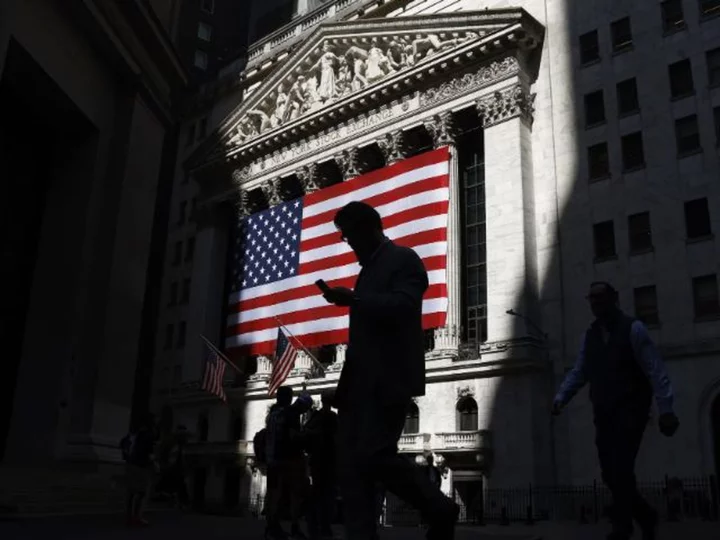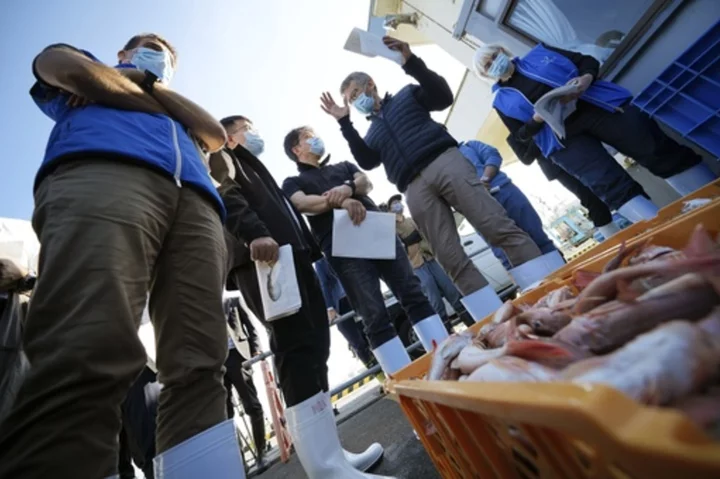By Luc Cohen and Jody Godoy
NEW YORK (Reuters) -FTX founder Sam Bankman-Fried testified on Monday that he believed that the cryptocurrency exchange was solvent at the time he tweeted "FTX is fine" just days before it declared bankruptcy in November 2022.
Testifying in his defense at his fraud trial for a second day, the 31-year-old former billionaire recounted the dramatic days leading up to FTX's collapse, and sought to dispute prosecutors' argument he misled the public about the exchange's health to try to slow a tsunami of customer withdrawals.
"My view at the time was the exchange was okay, and there was no hole in terms of assets," he said, referring to his state of mind when he tweeted on Nov. 7, 2022, four days before the exchange declared bankruptcy, "FTX is fine. Assets are fine ... we don't invest client assets.
Answering questions from his defense lawyer, Mark Cohen, Bankman-Fried said that after he posted the tweet, his hedge fund Alameda Research took a 50% hit when the price of cryptocurrencies it was heavily invested in plummeted.
Bankman-Fried said Alameda owed billions of dollars to FTX at the time, which he said changed his thinking about the exchange's solvency.
"I took down this tweet thread," Bankman-Fried said.
Bankman-Fried has pleaded not guilty to two counts of fraud and five counts of conspiracy. Prosecutors have said he looted billions of dollars in FTX customer funds to prop up Alameda, make speculative venture investments, and contribute to U.S. political campaigns. If convicted, he could face decades in prison.
During six hours of testimony on Friday about events earlier in 2022 and in prior years, Bankman-Fried admitted to making "mistakes" that hurt FTX's customers and employees, but said he did not steal customers' money.
His testimony on Monday was intended in part to push back on testimony from three of his former close confidantes that his November 2022 tweets were lies meant to give customers false assurance.
$8 BILLION SHORTFALL NOT A 'CRISIS'
A key piece of Bankman-Fried's defense is making clear to the jury that FTX customers, including Alameda, were allowed to trade on margin, which meant borrowing from other customers' deposits.
The Massachusetts Institute of Technology graduate told jurors on Friday he was "very surprised" when he realized in October 2022 that Alameda had borrowed $8 billion from deposits that FTX customers sent to the exchange, and that the loan was not listed on Alameda's main account. But said he believed the hedge fund's assets were large enough to pay it back.
Bankman-Fried said on Monday that while he was concerned, the $8 billion liability did not alarm him.
"If it were far larger I would have been calling a crisis," he said.
He also told jurors on Monday that Caroline Ellison - chief executive of Alameda Research and his former romantic partner - had failed to make trades that would offset the risk of falling cryptocurrency prices starting in mid-2022.
But he later said none of the usual hedging strategies would have spared the fund from a narrow crash in prices of specific cryptocurrencies it had invested heavily in that began in November of that year. Because Alameda had borrowed so heavily from FTX, the fund's collapse brought down the exchange, Bankman-Fried has said.
"The hedges that would have been helpful against the prior crashes that happened had effectively no benefit here," he said.
Ellison has pleaded guilty to fraud and testified against Bankman-Fried earlier this month.
Bankman-Fried's decision to testify in his own defense is risky, as it opens him up to probing cross-examination by prosecutors. But legal experts told Reuters he may have viewed taking the stand as his best shot at countering testimony from Ellison and two other cooperating witnesses - former FTX executives Gary Wang and Nishad Singh - that he directed them to commit crimes.
(Reporting by Luc Cohen in New York; Editing by Will Dunham and Nick Zieminski)

